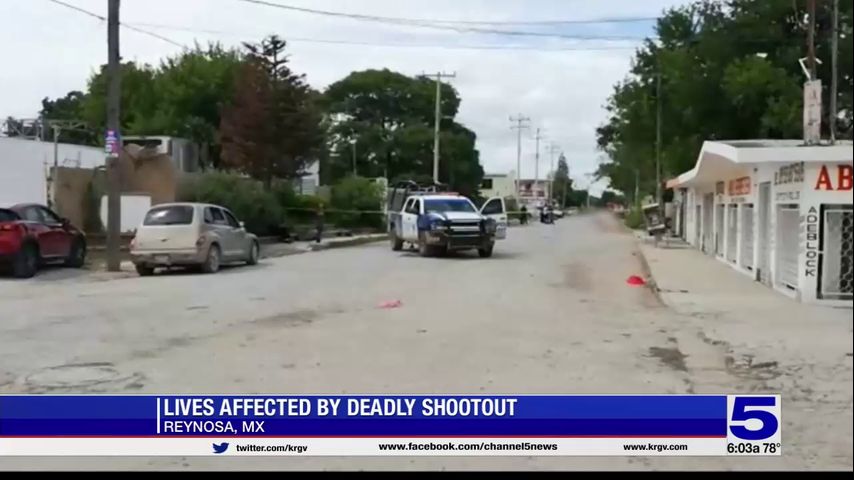Some victims in deadly Reynosa shootings identified
After 14 innocent people were killed in Reynosa on Saturday, some experts are saying there is a lack of coordination between the Mexican federal government and the governor of Tamaulipas.
For six hours on Saturday afternoon, people living their daily lives on the east side of Reynosa became victims of a crime that usually didn't directly affect the general population.
“What happened was a direct attack towards vulnerable people in working class neighborhoods,” said Giovanni Barrios Moreno, president of Justicia Tamaulipas A.C., who has been working for years to help families find loved ones that have disappeared because of organized crime in Tamaulipas.
RELATED: One person in federal custody following deadly Reynosa shootings
Moreno says an incident like the one on Saturday hasn't been seen in many years.
On Monday, funeral services were held for some of the victims, like 19 year-old Angel Fernando Ruiz from Rio Bravo.
"I don't care what problems the people that killed my brother have," said Olga Ruiz, sister of Angel Fernando Ruiz. "All I know is that they took the life of an innocent person."
A taxi driver, a worker at a store, and people in front of homes — all unrelated to the power struggle between armed civilians.
Tamaulipas Attorney General Irving Barrios Mojica said the motive of the attack was to instill fear in residents, saying the killings had no real reason.
Investigators have said the motive for Saturday's killings was a result of a turf war between criminal groups in Río Bravo fighting against cartels that operate in Reynosa.
RELATED:19 die in multiple attacks in Reynosa
Some experts say it’s going to be difficult to understand the motives of Saturday’s killings when Tamaulipas has a history of former governors prosecuted for associating themselves with organized crime.
Governor Francisco Garcia Cabeza de Vaca is being investigated for his alleged association with organized crime.
Another expert says the Mexican president's current strategy to fighting cartels is not working.
"And the worst thing that can happen is that the Mexican government insists in its non-confrontation 'hugs not bullets' strategy,” said Tony Payán of Rice University.
Payán says security in the border region of Tamaulipas with Texas has been deteriorating because he says the president has not wanted to combat organized crime head-on.





